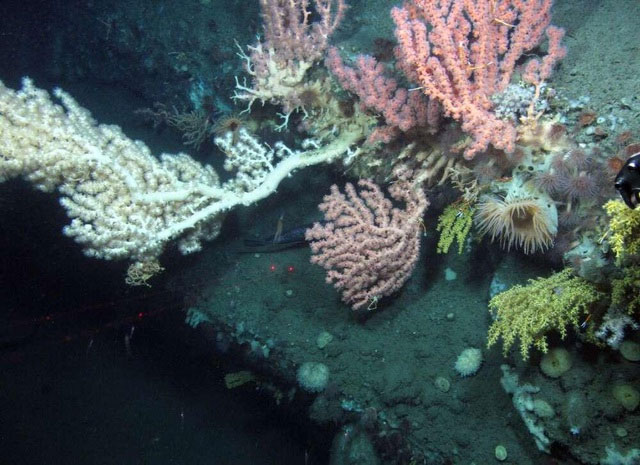After studying the ocean floor of the Atlantic Ocean for many years, scientists have discovered at least 12 new species of deep sea creatures that were previously unknown to science.
The new discovery comes from the ATLAS project, an international effort to better understand the deepwater ecosystems of the North Atlantic.
 Bubble coral in Baltimore Canyon.
Bubble coral in Baltimore Canyon.
During 45 research expeditions involving 80 scientists and student volunteers over the past four years, researchers have revealed some of their findings, including new species and ideas. new global ecosystems.
Among the 12 new species are several species of sea foam, molluscs and deep-sea corals. The new image also reveals a host of unusual sea creatures, including fish and crustaceans.
It was hoped that deep-sea ecosystems would be protected to some extent from the many effects of climate change. However, new research shows that even deep oceans are not immune to warming seawater temperatures. As surface water warms at a much faster rate, the ocean floor is starting to shrink. show signs of warming. The organisms that live in this region are likely to undergo significant changes soon.
“Everyone knows the importance of caring for the rainforest and other precious terrestrial habitats, but few realize that there is much, if not more, in special places. In the ATLAS project, we have studied most of the vulnerable deep Atlantic ecosystems and now understand how important, interconnected and fragile they are. “said Professor J Murray Roberts, ATLAS Project Coordinator at the University of Edinburgh.
Climate change is not the only problem threatening the deep oceans. Human activities, such as deep-sea mining and fossil fuel extraction, are also placing increasing pressure on these ecosystems.
The effects of these disturbances on the seabed can often last for decades and have a direct impact on the wider ecosystem.
A recent study in the Pacific Ocean at a depth of 4,000 meters below sea level in Peru, found that deep-water mining activity could have a profound effect on the lives of supporting bacteria. almost all of life is on the seabed.
Depending on their action, it takes at least 50 years for bacteria to regain their full normal function after being disrupted by extraction.
With new research from ATLAS, researchers hope to guide new policies and protections that can help save these dark environments before it’s too late.
Prof Roberts emphasized: “The challenge for the next decade will be to harness new social and scientific understanding and use it to create better plans and policies for truly sustainable activities for children. people in the ocean “.


